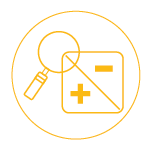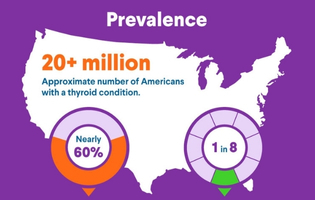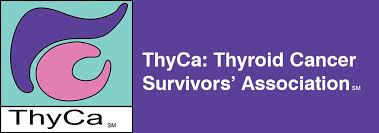Hypothyroidism Treatment
Hypothyroidism Treatment
How is hypothyroidism treated?
Hypothyroidism is generally treated with a single daily dose of levothyroxine. The correct dosage can help return the thyroid balance to normal. It is essential to take the medication as prescribed.
- A dose that is too high can cause symptoms of hyperthyroidism, create excessive strain on the heart, and lead to an increased risk of developing osteoporosis.
- A dose of thyroid hormone that is too low may fail to prevent enlargement of the thyroid gland, allow symptoms of hypothyroidism to persist, and be associated with increased serum cholesterol levels, which may increase the risk for atherosclerosis and heart disease.
- Older people who may have underlying heart disease are usually started on a low dose of levothyroxine, which is gradually increased. Thyroid hormone acts slowly in some parts of the body, so it may take several months after treatment is started for all symptoms to improve.
 Treatment Monitoring
Treatment Monitoring
How is hypothyroidism treatment monitored?
After you receive a diagnosis of hypothyroidism, your health care professional prescribes a single daily dose of levothyroxine. This medication, which typically comes in tablet or capsule form, replaces the thyroid hormone that your body doesn't make enough of.
Because food—especially fiber-rich food—can affect how your body absorbs levothyroxine, it's important to take it on an empty stomach. Aim to take your levothyroxine 30 to 60 minutes before breakfast each day with WATER only (not coffee, juice, or other liquids). If you have trouble remembering to take it, consider using a days-of-the-week pill container or setting an alarm or reminder alert on your smartphone or computer.
Certain prescription and over-the-counter medications and supplements may also interfere with levothyroxine absorption. Wait at least four hours to take antacids and supplements, especially those containing calcium or iron. If you take other medications, talk with your health care professional about whether you can take them at the same time as levothyroxine. And if your health care professional prescribes a new medication, ask them if it will interfere with your levothyroxine.
Your health care professional will let you know how often you should be seen for levothyroxine follow - up appointments. Be sure to keep those appointments. And if you notice symptoms between appointments, contact your health care professional to find out whether you should be seen earlier.
Because different people need different amounts of levothyroxine, determining your own personal just-right daily dose often requires some adjustments. Your health care professional starts by estimating a dose based on your age, size, and other factors. About 6-8 weeks later, your health care professional orders a blood test to measure your thyroid hormone levels.
If needed, your health care professional modifies your dose and may recommend more blood tests in another 6-8 weeks.
Several weeks after you begin taking the optimal dose of levothyroxine, any hypothyroid symptoms you experienced should begin to improve.
Monitoring your treatment long-term
Most people with hypothyroidism take levothyroxine for the rest of their lives. However, your ideal levothyroxine dose may change over time. This is normal. Some reasons for a dose adjustment may include changes in:
- Your health
- Your thyroid function
- Your weight
- The type of levothyroxine you take (for example, switching from name brand to a generic)
- The medications or supplements you take
Thyroid blood testing every 6-12 months tells your health care professional if your levothyroxine dose is on track.
Be sure to let your health care professional know if you experience any signs or symptoms that may suggest that your thyroid medication dose needs to be increased or decreased. These include:
- Bowel movement changes (diarrhea or constipation)
- Changes in energy levels, sleep habits, or tiredness
- Changes in heart rate, including a pounding heart
- Feeling unusually cold or warm
- Feelings of depression, anxiety, or irritability
- Menstrual changes
- Muscle aches or weakness
- Nervousness, jumpiness, or shakiness
- Unexplained weight changes
Making the most of your hypothyroid medication
Because food and other medications can have an impact on levothyroxine absorption, it's best to take it at the same time and under the same conditions each day. Ideally, you should take your levothyroxine dose in the morning, 30 minutes to 1 hour before eating breakfast, with only water.
Some medications and supplements, including iron supplements and certain antacids, interfere with levothyroxine absorption. Even a daily multivitamin can make levothyroxine less effective. Take these medications and supplements at least four hours before or after levothyroxine.
Getting too much iodine, a mineral your body uses to make thyroid hormones, can also have a negative effect in people diagnosed with Hashimoto’s disease. To protect yourself, limit iodine-rich foods such as seaweed and don't take iodine supplements or iodine-containing medications without first discussing it with your health care professional.
 Treatment Adjustment
Treatment Adjustment
Why does hypothyroidism treatment need to be adjusted?
Since most cases of hypothyroidism are permanent, it is usually necessary to treat the condition throughout one's lifetime. Medication doses may have to be periodically adjusted. When you're taking the right amount of levothyroxine, your blood level of thyroid hormones moves into the normal range, and any hypothyroid symptoms you're experiencing decrease or disappear.
Appropriate management of hypothyroidism requires continued care by a physician experienced in the treatment of this condition.
If you have hypothyroidism, your health care professional will likely prescribe a drug known as levothyroxine. (Brand names for levothyroxine include Euthyrox, Levothroid, Levoxyl, Synthroid, Tirosint, and Unithroid.) Levothyroxine replaces the thyroid hormone that your underactive thyroid is not producing. It is a synthetic version of the thyroid hormone T4.
Your health care professional prescribes a levothyroxine dose that they estimate will be right for you. However, you may have to have your levothyroxine dose adjusted one or more times to get it to the right place. Don't be surprised if this happens to you - it's normal. Each time your health care professional adjusts your dose, they will schedule a blood test in six to eight weeks to check your thyroid hormone levels and increase or decrease your dose as needed.
Once your health care professional determines the right levothyroxine dose for you, they will recommend follow-up blood tests every three months to one year to check on your dose. Even after your health care professional determines the right dose, however, it's not unusual for your dose to require future adjustments. Dose shifts may become necessary because of changes in your thyroid function or because of factors such as weight loss or gain, other medicines you take, or changes in your health.
Even differences in your diet can impact how much levothyroxine you need. Foods such as soybean flour, walnuts, and dietary fiber can decrease absorption of levothyroxine in your gut. That doesn't mean you should avoid these foods, but it is worth keeping in mind that if you start eating much more or much less of these foods than usual, your levothyroxine dose may need adjusting. For example, if you shift from a low-fiber to high-fiber diet, you may need a little more levothyroxine.
It's important for you to see your health care professional regularly for levothyroxine dose monitoring. A dosage that is just right for you today could be too large or too small a few months or years from now. Taking too much or too little levothyroxine can cause a range of symptoms, including the following:
- Changes in your need for sleep (ranging from insomnia to excessive sleeping)
- Changes in your weight (loss or gain)
- Cramps in your legs
- Depression
- Fatigue or lack of energy
- Fever
- Gastrointestinal symptoms such as vomiting, diarrhea, constipation, or appetite changes
- Hair loss
- Headache
- If you're a woman, changes in your menstrual periods (more or less bleeding, irregular periods) or trouble getting pregnant
- Increased sensitivity to heat or cold
- Nervousness, irritability, or anxiety
- Pain in your joints
- Rapid or irregular heartbeat
- Skin rash





 DOWNLOAD
DOWNLOAD




